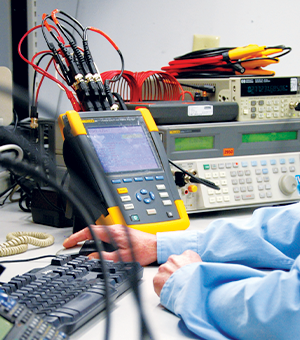Introduction: In the intricate world of modern technology and industry, precision is paramount. Whether it’s in manufacturing, healthcare, or research, accuracy ensures reliability and safety. This is where calibration specialists play a pivotal role. In Singapore, a global hub of innovation and industry, the demand for calibration expertise is particularly high. Let’s delve into the significance and responsibilities of calibration specialists in Singapore’s dynamic landscape.
What is Calibration? Calibration is the process of comparing measurements made by a device to a known standard to ensure accuracy. Instruments ranging from thermometers to complex machinery require regular calibration to maintain precision. This process involves adjustments to correct any discrepancies between the device’s measurements and the standard, guaranteeing reliability in various applications.
The Role of Calibration Specialists: Calibration specialists are highly skilled professionals responsible for calibration specialist singapore performing precise calibration procedures. Their expertise lies not only in executing the calibration process but also in understanding the intricacies of different instruments and standards. In Singapore, where industries demand utmost accuracy, calibration specialists are indispensable.
Responsibilities of Calibration Specialists:
- Precision Calibration: Specialists meticulously calibrate instruments according to established standards and procedures. This involves intricate adjustments to ensure accurate measurements.
- Compliance Assurance: They ensure that calibrated instruments comply with relevant industry standards and regulations, maintaining quality control and legal compliance.
- Documentation and Reporting: Calibration specialists maintain detailed records of calibration procedures, documenting measurements before and after calibration. This documentation is crucial for traceability and quality assurance.
- Troubleshooting and Maintenance: They diagnose and rectify issues with instruments during calibration, ensuring optimal functionality. Additionally, they may recommend maintenance procedures to enhance instrument longevity.
- Continuous Learning: Calibration specialists stay updated with the latest advancements in calibration techniques, equipment, and industry standards. Continuous learning is essential to adapt to evolving technologies and maintain expertise.
Significance in Singapore: In Singapore, precision is fundamental across various sectors, including manufacturing, healthcare, aerospace, and pharmaceuticals. The city-state’s reputation for excellence relies on accurate measurements and reliable processes. Calibration specialists uphold this standard by ensuring that instruments meet stringent accuracy requirements. Their contributions support Singapore’s position as a leading global hub for innovation and industry.
Challenges and Opportunities: While calibration specialists play a crucial role, they also face challenges such as evolving technology, regulatory changes, and the need for specialized training. However, these challenges bring opportunities for innovation and skill development. As industries adopt advanced technologies, calibration specialists can leverage automation and data analytics to enhance calibration processes, driving efficiency and accuracy.
Conclusion: Calibration specialists are unsung heroes in Singapore’s quest for precision and excellence. Their meticulous work ensures that instruments deliver accurate measurements, underpinning the reliability of critical processes across industries. As technology advances and industries evolve, the role of calibration specialists remains indispensable. In Singapore’s dynamic landscape, where innovation thrives, these specialists continue to be at the forefront of maintaining standards of accuracy and reliability, ultimately contributing to the nation’s success on the global stage.